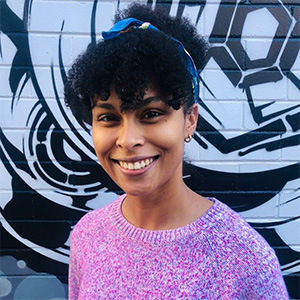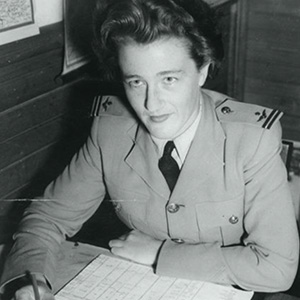

Reconciliation Week: Bravery and change from the perspective of a First Nations student
Trinity student Elloise Bridge reflects on this year’s Reconciliation Week theme, and says we all need to be brave and speak out.
This year’s Reconciliation Week theme is ‘Be brave. Make change’. When I think of who inspires me to be brave, among many, it’s my grandpa Ernest Francis Bridge.
My grandpa, a proud Kija man from the Kimberley, was the first Aboriginal person elected to Western Australia’s state parliament, and the first Aboriginal person to serve in an Australian cabinet. Only novels could detail the achievements of my grandpa, but, to sum him up, he was a brave man.
The 30th prime minister of our country told us that ‘I forgive you’ was the hardest thing to say, once again pinning the responsibility back on Indigenous peoples, like it has always been. The 31st prime minister made it his first point of action to state that the Uluru Statement from the Heart would be enacted in full. We will see what this new government brings. As a white-passing Aboriginal woman, I see the casual and blatant racism daily in a way my brothers and sisters do not, I see it when they think no one is watching. Since invasion, Indigenous peoples of Australia have been fighting for our rights, and we are still fighting today.
The change that the Uluru Statement will bring, if enacted in full, is unprecedented.
This week is a week when corporations hold breakfasts, schools do presentations, workplaces wear pins, tokens are tokenised, and the colonisers get to feel good because THEY are doing something. Colonisation is not something we can historicise. It is ongoing, as stolen lands are commodified and Indigenous culture is marginalised, the coloniser prevails. Non-indigenous bravery is reconciling with the fact that they are the colonisers.
This week is performative, given reconciliation is yet to be achieved, it serves only as tool to silence mob when we say enough is not being done. If we had it our way, it would be reconciliation week, every week.
Being brave to me has always been about speaking out, even if it upsets the pack. Calling out the disrespect, the mistreatment, the racism; that’s bravery. My grandpa wasn’t afraid to be brave, as a blak man living in the 20th century – a time where he was persecuted for the colour of his skin, he demanded for the rights of his people, he called out performative activism, and he made changes in the hopes that Aboriginal people after him would not have to be brave.
We shouldn’t have to be brave, and change shouldn’t have to be made; but it must, so we must.
By Elloise Bridge
-
News & Stories
- Anzac Day 2024 – Trinity stories
- Book now – Heathers: The Musical
- Guest preacher Chris Mulherin on the intersection of science and religion
- Meet Foundation Studies student Gabriella Sim
- Meet Foundation Studies student Hanadi Alabdouli
- Meet Foundation Studies student Miguel Valmayor
- Meet Gemma and Frederik Le Mesurier
- Meet Nakata Brophy prize winner Jasmin McGaughey
- Meet visiting professor the Hon Justice Joe Williams
- Pioneering women and the story of Janet Clarke Hall
- Visit David Frazer's new exhibition: All that you've loved
- What is Eid al-Fitr?
- Events
- Art
- Music & Choir
- Campus Development Projects
- Visiting Scholars & Lectureships
- Accommodation for Visitors
- Short Programs
- Work at Trinity


.jpg?lang=en-AU&ext=.jpg)
